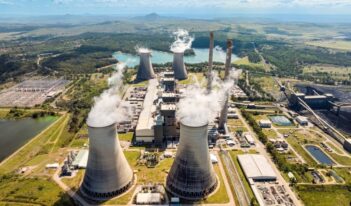
Government report predicts climate change will strain U.S. security.
What effects will climate change have on the security missions of the American military and intelligence forces?
The devastation from Hurricane Sandy has reinforced many concerns about the potential domestic effects of global warming. Yet a recent government report also predicts that climate change could seriously impact national security and foreign policy.
The report, issued by the National Research Council (NRC) and commissioned by the Central Intelligence Agency (CIA) and other U.S. intelligence agencies, predicts in the coming years “droughts, heat waves, storms, or other climate events of surprising intensity or duration will stress communities, societies, governments, and the globally integrated systems that support human well-being.” States will fail, and populations will be forced to migrate across borders to escape disease and obtain access to scarce resources. According to the report, these changes will place new strains on U.S. national security forces as they are forced to respond to these disruptions.
The report also warns that climate-related stresses will likely “have global security implications serious enough to compel international response.”
The Council’s report provides examples of how climate change has already destabilized some countries and how similar problems could develop in the future. The report points to the severe heat wave that hit Russia and the flooding that occurred in Pakistan, both in the summer of 2010. It also notes the potential for future conflicts in the Nile River watershed as Egypt, Sudan, and Ethiopia compete for resources. Moreover, foreign governments, such as South Korea and Saudi Arabia, have reportedly invested in the Nile River Watershed which could lead to an international conflict should the local governments seek to dispel these foreign presences.
Although the US government has taken a few steps to mitigate some threats posed by climate change, such as by implementing fuel efficiency standards for the military, other measures seeking to combat climate change have failed. The intense pressure to reduce government spending has significantly slowed these efforts. For example, the CIA’s Center on Climate Change and National Security has faced strong opposition from Senator John Barrasso (R-WY) and others who sought to deny the funding needed for the Center’s creation. In 2009, Senator Barrasso stated that he did not “believe creating a center on climate change [would] prevent terrorist attacks.”
However, John D. Steinbruner, the Director of the Center for International and Security Studies at Maryland and the chair of the NRC committee that produced the recent report, recently highlighted the importance of government investment in this area, arguing that a lack of funding has led to a gap in US satellite coverage of storm tracks. In response to the threats posed by climate change, the National Research Council recommends bolstering all government agencies’ abilities to monitor climate change and assess the risks it poses to populations and resources.
With posturing over the looming fiscal cliff ongoing, the tension between reducing the federal deficit and fortifying the country against the widespread implications of climate change will likely remain pronounced. The release of the report from the National Research Council may lend greater urgency to concerns about the threat of sequestration.
The federal government has released other reports on the national security implications of climate change in recent years. Most notably, the National Intelligence Council, which supports the Office of the Director of National Intelligence, issued a classified report in 2008 and has since produced unclassified reports on climate change and national security.



